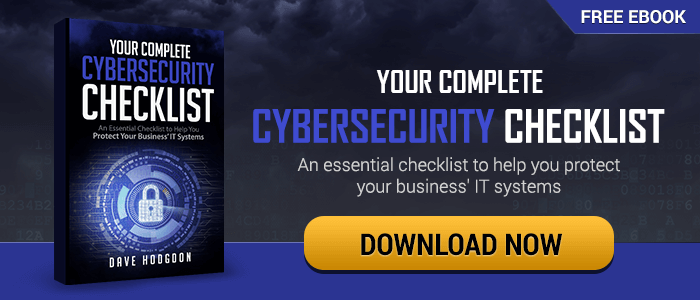Business Continuity
Businesses need to be dependable to be successful. The security of your data and the resilience of your business are vital to your cash flow, your customers, and your future.
Unfortunately natural disasters, human error, and cyberattacks can cause major service disruption, and these threats are diverse, which makes tackling them a challenge. That’s where business continuity planning comes in. In short, it’s all about fortifying your daily operations and resisting major threats from a variety of sources. For most businesses, there’s little separation between IT and business continuity.
Only a small percentage of businesses have confidence in their business continuity plan, which is unfortunate since it could be a matter of life and death for your company. If your technology goes down, so do company operations, and that’s why business continuity focuses on data security, backup, and recovery as a defense against outages and interruptions.
What threats do I face?
Business continuity risks come from a variety of sources from external security threats to human error. Here’s a sample of the threats that could strike your business without warning:
Cyberattacks
The fear of cyberattack is rampant at all levels of our society, from individuals wanting to protect their data to governments wanting to protect their vital infrastructure. If cyberattacks can take down power grids, imagine what they can do to your business.
A cyberattack or server malfunction could lead to a loss of client data, thus crippling your company’s ability to do its job. Every year cybersecurity incidents cause billions in damages — and close some businesses for good.
Human Error
Even if you have the utmost trust in your team, things can still slip. Inattentiveness can be as much of a threat to your business as any hacker. Even basic human errors could have significant repercussions for your company.
Disasters and Outages
Not all continuity threats start with people. Nature can bring its own share of problems. Natural disasters can destroy your local servers, flood your premises, or cause outages that threaten your business continuity. Even an outage of local utilities can cause service interruption.
Each hour you’re offline, your business will lose money and fail to meet client expectations. Without a business continuity plan, these are all events outside your control.
Downtime is costly and we have been through it enough to know the value of high quality IT. Now we have a disaster recovery plan and a system with many points of back up. The most impressive benefit was the ability to spin-up (turn on) our servers in the cloud. This gives us peace of mind knowing that PCG has this covered. PCG has a passionate and caring team and the techs take the time to get to know our people’s needs and we really appreciate that.
Oil and Gas Company
Business continuity planning – key factors
1. Resilience
The best-case scenario is to never deal with a continuity crisis at all. If you can turn your business into a digital castle, you’ll reduce the risk of intrusion, interruption, and data loss.
Building strong resilience means deploying the right technology and strategies to catch and kill potential threats before they’re a problem. It also means having the tools you need to bounce back if you do experience service disruption.
2. Recovery
No solution is foolproof. If the worst happens and your IT systems are compromised, you need to recover and restore vital data as quickly as possible. A cyberattack or server malfunction can lead to a loss of client data, for instance, crippling your company’s ability to do its job.
Recovery can be the difference between a minor break in service and your business shutting its doors forever. Some data losses are just too big to recover from without recovery plans.
3. Contingency
If your business suffers a massive or prolonged outage, it can cripple your operations. Your contingency plan is what gets you back on your feet. Contingency plans and interim solutions will keep your business in the game until you can restore full operations.
What can you do?
A good defense comes down to two things: planning and strategy.
Think of business continuity planning as a way of translating the chaos and panic of a service disruption into part of an ordered daily workflow. Instead of dealing with a problem when it arises, you deal with it in advance.
If anything happens, you keep calm and roll out your plan. Just another bump in the road.
Of course, coming up with a robust, all-encompassing data security and continuity plan isn’t as easy as it sounds. There are a lot of angles to consider. You’ll need expert advice to factor in all the threats to your business, build a strategy, and deploy countermeasures.
Sounds great! What’s next?
If you’re wondering where to turn for help, look no further than PCGiT. Our customized business continuity plans enable you to access your data 24/7 and build resilience into your business. Our plan will help you resist threats to business continuity and restore operations after a service interruption.
Among other things, we offer:
- Redundant data storage
- Automated back-ups — local and remote
- Encrypted data tools
- Recovery time objectives
We work hard to ensure you’ll always have access to your vital files and client data, and we’ll work with you to create a plan that suits your business continuity needs. We understand that continuity and data security are never a one-size-fits-all situation.
We help you plan for the unexpected. Start safeguarding your data and your business today!









